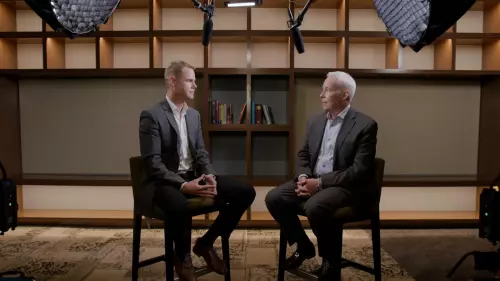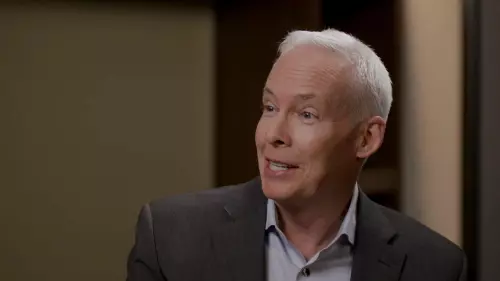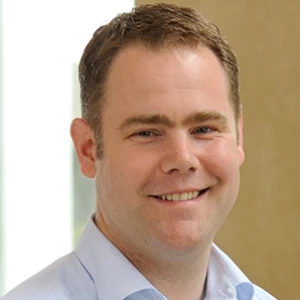Headquartered in Cambridge, Massachusetts, Biogen is a global biotechnology company that has pioneered innovative therapies for multiple sclerosis, spinal muscular dystrophy, and Alzheimer’s disease. Chief Financial Officer Mike McDonnell sat down with BCG’s Torben Danger to discuss Fit for Growth, the company's bold transformation initiative, and employees’ role in making it a success. The discussion also touched on leadership, inorganic growth, and AI. Edited excerpts of the conversation follow.
Before joining Biogen, you worked in various industries, including professional services, satellite service, and contract research. How did that diverse experience influence your leadership style here at Biogen?
At the end of the day, management has three basic responsibilities––grow the top line, expand margins, and allocate capital the right way. No matter how different the business models are, those three fundamentals are consistent. What I have tried to bring to any new role, particularly when I came to Biogen, is the question of how we were doing on those three priorities.
In 2023, you launched a bold transformation program called Fit for Growth. You took an approach of cutting costs while also investing strategically.
The number-one objective that we have at Biogen is to restore the company to growth, both on the top line and on the bottom line. So, one thing we did was look at our cost base. Biogen at its peak had a $14 billion revenue base. It's currently about $10 billion. You can't have the same cost base on a $10 billion revenue base that you had on a $14 billion revenue base. But perhaps more important, we had to free up capital and resources that we were investing in some of our mature products that were declining, particularly in our multiple sclerosis franchise, to invest more in growth initiatives.
Every transformation presents a cultural challenge as well. How did you go about preserving Biogen’s entrepreneurial spirit while going through such a transformation?
Capturing hearts and minds is really important. You must have people who are engaged, who really embrace the need for change, and you don't get that just by cutting costs. We could have just issued targets and said, “Everybody cut 20%,” or “You cut 5% and you cut 30% and you cut 8%.” You don't capture hearts and minds that way.
To get people engaged and inject an element of creativity, we allowed them to redesign their organizations. We said, “Take your organization as the business unit leader and redesign it as if you were starting from day one for the existing business––and dedicate the resources to growth initiatives and reduce resources in places where you don't necessarily have growth currently or growth aspirations. Then run a comparison with what you currently have and make the needed cuts.” We reduced a lot of cost but more importantly, we freed up resources to invest developing new products with promise.
Everybody ultimately had targets that they were accountable for and that they had to hit, but we allowed them a lot of latitude in figuring out how to get to those targets. That was very important because it helped us keep people happy and engaged––we needed to have everybody working on it.
You also invested in inorganic growth quite substantially. When you look at a potential target, what do you look for? How do you determine strategic fit to Biogen, and what are your plans for the future?
When you're in neurology, the probability of success, at least initially, is very low. So you can often have things in the portfolio that we like to refer to as moonshots, things that are very difficult to get all the way through clinical trials and FDA approval. It's certainly appropriate to have a few of those moonshots in your research and development mix, but everything in the portfolio can’t be a moonshot.
Last year, we did a very large acquisition of Reata Pharmaceuticals––that was a $7.5 billion transaction. As a result, we now have a product called Skyclarys, which treats Friedreich's ataxia, a rare degenerative disease that affects the nervous system.
We continue to be very committed to neurology but are looking to diversify the portfolio. We've got a strong track record in rare disease. For example, we have a product called Spinraza, which treats spinal muscular atrophy. The launch has been very, very successful and we think that we can replicate it. We're pretty good at identifying rare diseases where there is unmet patient need. We will continue to invest both organically and inorganically, with a focus on early-stage and late-stage drugs that offer the most promise for patients.
How would you articulate the impact that AI and GenAI will have on health care?
We're looking to implement AI in various areas. It is an efficiency tool in investor relations, finance, and procurement . AI at Biogen, however, will play an especially important role in some of our manufacturing processes and in R&D, in particular, to make clinical trial recruiting and site selection more efficient.





